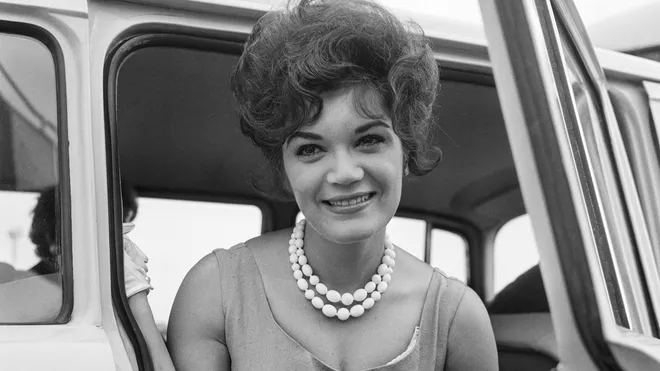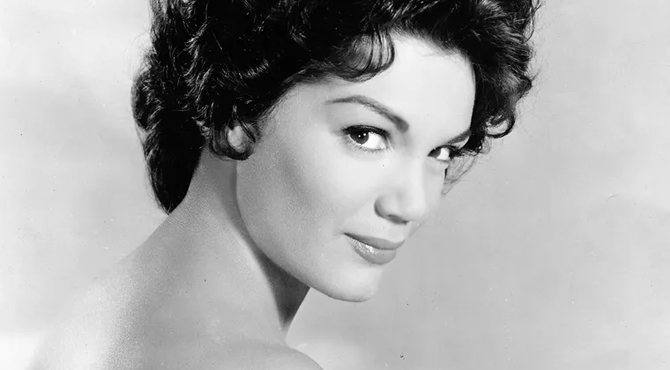Connie Francis, the 1950s and ‘60s pop star known for hits like “Pretty Little Baby,” has died. She was 87.
Her death was announced by her friend and publicist, Ron Roberts.

Francis, who had more than a dozen top 20 hits from 1957-1964, died Thursday. Her hits started with “Who’s Sorry Now?” and included the No. 1 songs “Don’t Break the Heart That Loves You” and “The Heart Has a Mind of Its Own.” She also starred in several films, including “Where the Boys Are” and “Follow the Boys.”
A cause of death has not been released.
Francis was 17 when she signed a contract with MGM Records following appearances on several TV variety shows. Her earliest recordings attracted little attention, but then she released her version of “Who’s Sorry Now?” an old ballad by Ted Snyder, Bert Kalmar and Harry Ruby.
Her first hit, “Who’s Sorry Now?” an old ballad by Ted Snyder, Bert Kalmar and Harry Ruby, didn’t get much attention until Dick Clark played it on “American Bandstand” in 1958.
Francis followed with such teen hits as “Stupid Cupid,” “Everybody’s Somebody’s Fool,” and “Lipstick on Your Collar.” Her records became hits worldwide as she re-recorded versions of her original songs in Italian and Spanish among other languages. Her concerts around the country quickly sold out.
Concetta Rosemarie Franconero was born on Dec. 12, 1937, in Newark, New Jersey. She was just 3 when her father presented her with a child-size accordion. The next year she began singing and playing the instrument at various public events.
At age 9 she began appearing on television programs, including “Arthur Godfrey’s Talent Scouts” and “The Perry Como Show.” It was Godfrey who suggested she shorten her last name.
Francis recalled in her autobiography, “Who’s Sorry Now?” that she had a romance with fellow teen star Bobby Darin, but that ended when her father pulled a gun on Darin after finding out about their relationship. From there, Francis continued on a traumatic path.
“My personal life is a regret from A to Z,” she told The Associated Press in 1984, the year the book came out. “I realized I had allowed my father to exert too much influence over me.”
Although her acting career had faded by the mid-1960s, Francis was still popular on the concert circuit when she appeared at the Westbury Music Center in Westbury, New York, in 1974. She had returned to her hotel room and was asleep when a man broke in and raped her at knifepoint. He was never captured.
Francis sued the hotel, alleging its security was faulty, and a jury awarded her $2.5 million in 1976. The two sides then settled out of court for $1,475,000 as an appeal was pending. She said the attack destroyed her marriage and put her through years of emotional turmoil.
She suffered tragedy in 1981 when her brother George was shot to death as he was leaving his New Jersey home. Later in the decade, her father had her committed to a mental hospital, where she was diagnosed as manic-depressive. At one point she attempted suicide by swallowing dozens of sleeping tablets. After three days in a coma, she recovered.
She was married four times and would say that only her third husband, Joseph Garzilli, was worth the trouble. The other marriages each lasted less than a year.
Francis often credited her success to Clark’s “American Bandstand.”
